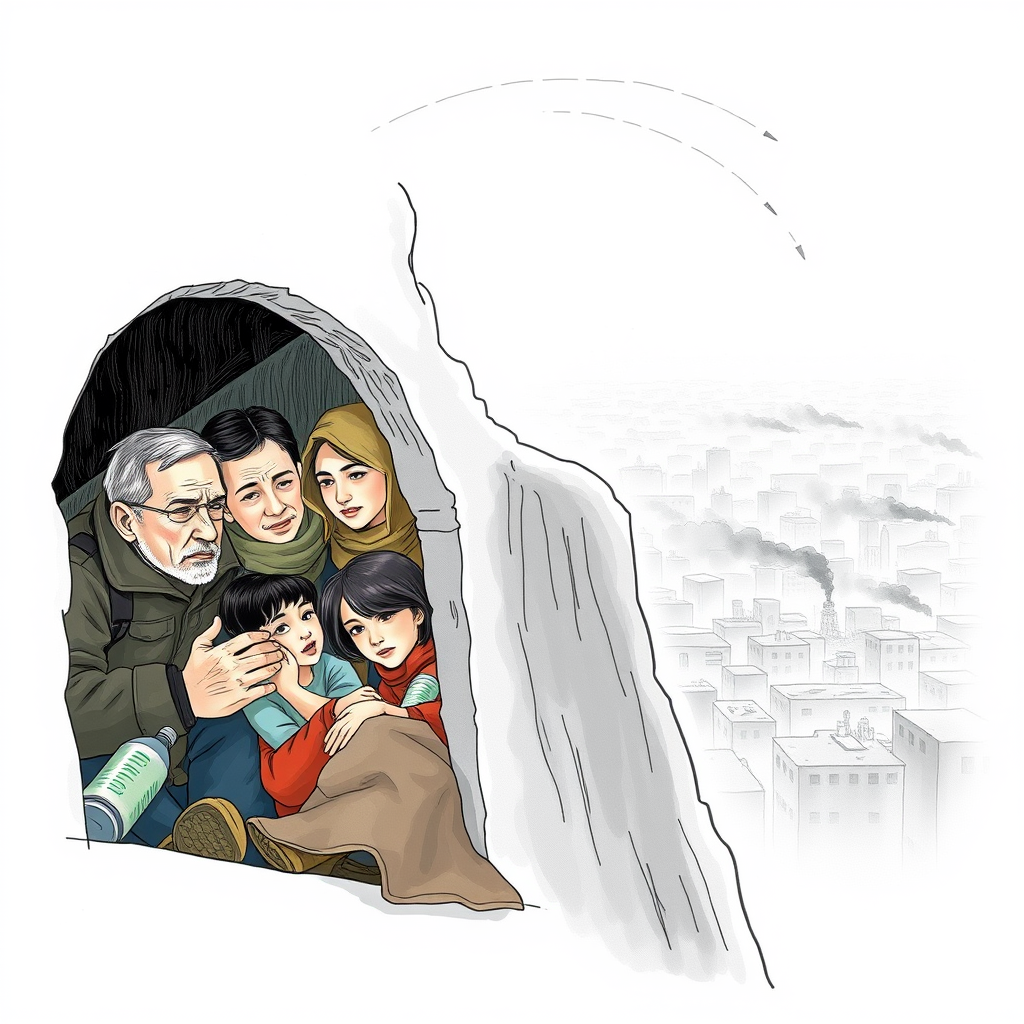Israelis Support Iran Strike Despite Missile Barrage

Israel is grappling with a new reality of direct conflict following a sudden attack on Iran, a move that has elicited a surprising degree of public support even as the nation braces for retaliatory strikes and lives under the constant threat of missile attacks. The country has taken on an eerie stillness, with businesses shuttered and streets largely deserted as citizens seek shelter. Supermarkets are stripped bare of essentials – bread, milk, diapers, water – as Israelis prepare for potentially prolonged periods confined to bomb shelters.
The offensive, launched on June 13th, caught many Israelis off guard, coming before planned events like a lavish wedding within Prime Minister Netanyahu’s family and amidst ongoing negotiations regarding Iran’s nuclear program. Initial reactions ranged from disbelief to a grim acceptance, shaped by years of rhetoric and perceived threats from Tehran. While previous conflicts with Hamas and Hezbollah in Gaza and Lebanon prompted a degree of familiarity with rocket sirens, the scale and potential destructive power of Iranian missiles have instilled a palpable sense of vulnerability.
Israel’s multi-layered defense system offers varying degrees of protection. Buildings constructed after 1992 feature reinforced “safe rooms,” while older structures rely on communal bomb shelters. Those caught outdoors must seek refuge in public shelters dotted across the country. The experience varies drastically. One elderly resident of Bat Yam, accustomed to simply sitting in a stairwell during Hamas barrages, now regularly descends to a crowded, dusty bomb shelter. Others, like the four women killed in Tamra, tragically did not reach their safe room in time, raising questions about the effectiveness of the alert system and the targeting of civilian areas.
The disparity in protection is stark. Bedouin and Palestinian communities within Israel often lack adequate shelters, leaving residents exposed. While Israel maintains it avoids civilian casualties and accuses Iran of intentionally targeting noncombatants, reports indicate significant civilian deaths on both sides. A human rights group estimates over 400 civilian deaths in Iran through June 15th, while Israel has reported 24 deaths in four nights.
Despite the risks and destruction, a significant portion of the Israeli public appears to support the offensive, even anticipating regime change in Iran. Celebratory scenes, including religious Jews dancing in underground parking lots during air raid sirens, highlight a fervent desire to eliminate the perceived threat. However, this enthusiasm is not universal. Some Israelis express wariness about the long-term consequences of the conflict, while others lament the interruption of efforts to secure the release of hostages held by Hamas.
The shift in focus from the hostage crisis to the escalating conflict with Iran is a source of deep concern for families of those still held captive. Dani Elgarat, whose brother died in captivity, voiced frustration that the number of hostages and days in captivity are no longer prominently mentioned in media coverage.
This conflict represents a dangerous escalation with potentially far-reaching consequences. While many Israelis appear resolute in their support for the offensive, the human cost is already significant, and the path forward remains uncertain. The question remains whether this gamble will ultimately enhance Israel’s security or plunge the region into a prolonged and devastating war.